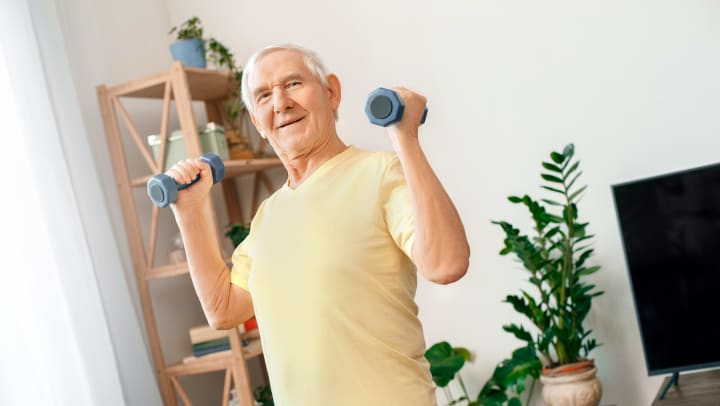During times when a crisis forces us to stay indoors, such as the coronavirus (COVID-19) outbreak, protecting our physical and mental well-being can be a little more challenging. A healthy diet and exercise are two essentials, as well as a good night’s sleep.
What can be tougher to navigate is the emotional stress the crisis and isolation create. While it takes some effort, there are ways you can remain stimulated, active, and connected, while also staying safe at home.
Here are a few tips to keep you thriving in difficult times.
5 Ways to Maintain Wellness during a Time of Isolation
- Eat a well-balanced diet.
While it’s common for stress and anxiety to cause cravings for comfort foods, a well-balanced diet is essential for older adults. It’s an important factor in keeping the immune system strong and stabilizing your blood sugar, which can help maintain a positive outlook.
- Fresh vegetables and fruits are best, but they may be harder to come by during a crisis. Stock your freezer with frozen vegetables and lean sources of protein, such as chicken and fish. Canned vegetables are higher in sodium, but might be necessary when access to fresh food is limited.
- When you are stuck indoors, the body doesn’t capture enough of the sun’s UVB rays to produce the vitamin D it needs. Make sure to consume foods that contain vitamin D and calcium or talk with your physician about supplements.
- To make dinnertime easier and more budget-friendly, consider prepping and freezing meals in batches. If you aren’t able to do that, sign up for a meal delivery service such as Silver Cuisine.
- Exercise most days of the week.
When you are feeling isolated and lonely, it can be easy to forego your exercise routine. It might help boost your mood and your physical health to engage in a morning and an afternoon workout, even if they are only 10 to 15 minutes long. Spending time outside can bring new perspective, just be certain to maintain social distancing requirements.
Exercise is also a great stress buster. During times of uncertainty, finding ways to manage stress is vital. Chair yoga, marching in place, resistance bands, and quick, free videos from the Go4Life program are a few senior-friendly forms of exercise to try.
- Limit news consumption.
During a crisis or natural disaster, it can be tempting to sit in front of the television for hours watching the news. While it is important to stay up-to-date on emergency situations, this doesn’t require continuous consumption of television news.
Try watching your favorite news outlets for short amounts of time in the morning and evening. Then get up and get moving. Go for a walk. Clean out a closet or a cupboard. Do some laundry. Stay active.
To alleviate worry over missing any breaking news, sign up for emergency alerts from your local government or favorite news station. Most offer texts or emails for crisis situations.
- Practice good sleep hygiene.
Everything looks and feels a little better after a good night’s rest. When you are riding out an emergency at home, it may help to create and stick with a routine. Getting up and going to bed at the same time and exercising at similar times each day can promote better sleep.
A few other best practices for getting optimal rest include avoiding caffeine late in the day, turning off the television at least an hour before bedtime, and keeping the bedroom cool. Also store devices that emit a blue light in another room.
- Stay connected to loved ones.
Being forced to quarantine yourself can take an emotional toll. From depression to anxiety, research shows isolation can create serious health consequences for seniors. While the steps outlined above can all help, staying connected with friends and family is also important. Whether it’s by phone, video chat, or through social media, connect with loved ones every day.
How Senior Living Promotes Social Support
Senior living communities maintain an environment that reinforces social distancing during the COVID-19 pandemic, while also helping seniors stay as active, engaged and connected as possible through challenging times.
Clearwater Living invites you to call the community nearest you to learn how we plan for and respond to emergencies of all kinds, including the COVID-19 crisis.

